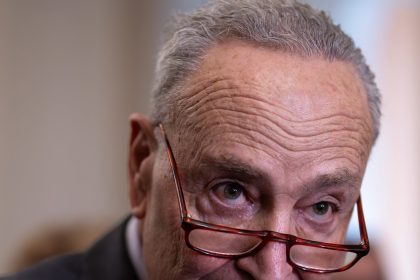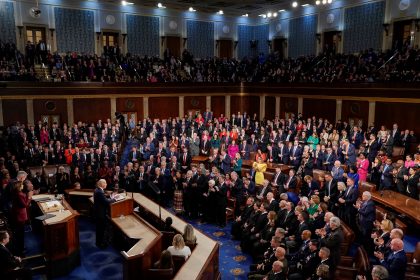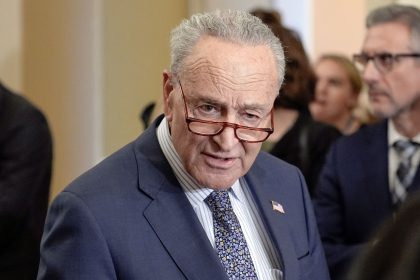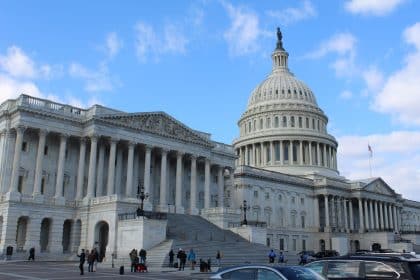Bipartisan Infrastructure Bill Would Add $256 Billion to Deficit, CBO Finds
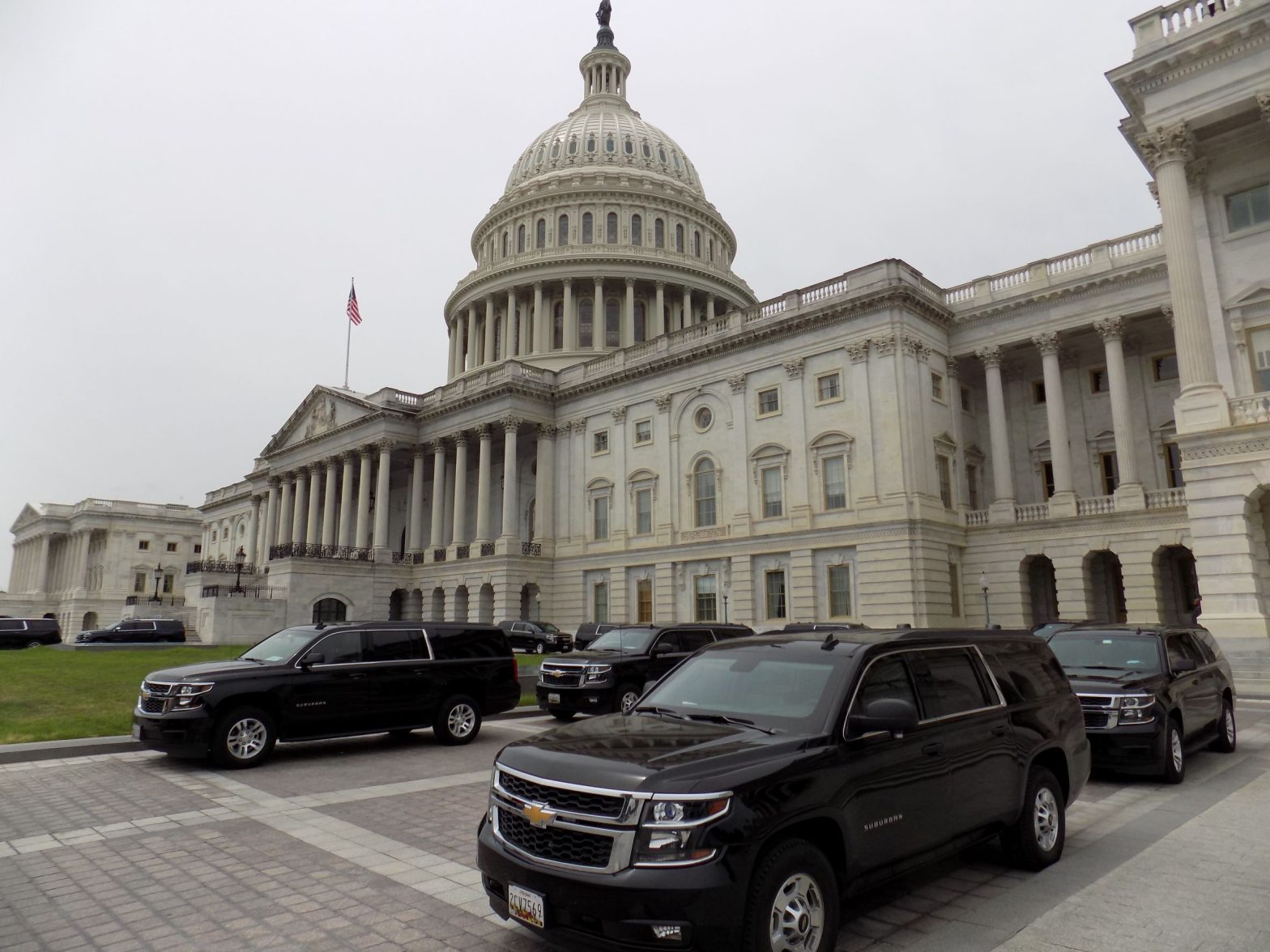
WASHINGTON — The bipartisan infrastructure package set to be voted on in the U.S. Senate, perhaps as early as Saturday, would add $256 billion to the federal deficit, the nonpartisan Congressional Budget Office said Thursday
The budget office estimated that enacting Senate Amendment 2137 to H.R. 3684, as the package is officially known, would increase discretionary spending by $415 billion over 10 years while increasing revenues by $50 billion and decreasing direct spending by $110 billion.
“On net, the legislation would add $256 billion to projected deficits over that period,” CBO reported in its summary.
But Sens. Rob Portman, R-Ohio, and Kyrsten Sinema, D-Ariz., the lead negotiators of the bipartisan bill, argued that their pay-fors would more than cover the $500 billion in new spending called for in the package.
“The CBO score says that the cost of the bill is $228 billion over five years and $415 billion over 10 years, and the offsets we have identified total $519 billion,” they said in a joint statement Thursday. “The new spending under the bill is offset through a combination of new revenue and savings, some of which is reflected in the formal CBO score and some of which is reflected in other savings and additional revenue identified in estimates.”
They went on to explain that the “CBO is limited in what it can include in its formal score.”
Portman and Sinema also provided a list of the new spending pay-fors. They are:
- $53 billion from certain states’ unused enhanced federal UI supplements;
- $67 billion in unused savings from the COVID-19 employer retention tax credit that CBO projected would be utilized and were not, minus the impact of sunsetting the credit;
- $106 billion in unused savings from COVID-19 paid and family leave tax credits that CBO projected would be utilized and were not;
- $51 billion from delaying Medicare Part D rebate rule;
- $21.4 billion in rescissions in unused funding from 2020 COVID-19 bills;
- $10.2 billion from sales of future spectrum auctions;
- $67 billion from proceeds of the February 2021 c-band auction;
- $53 billion in economic growth resulting from a 33% return on investment in these long-term infrastructure projects;
- $28 billion from clarifying the application of information reporting requirements for cryptocurrency;
- $21 billion from extending fees on GSEs;
- $14.5 billion from reinstating certain Superfund fees;
- $8.7 billion from extending the mandatory sequester;
- $6.1 billion in sales from the Strategic Petroleum Reserve;
- $6 billion from extending customs user fees;
- $3.2 billion in savings from reducing Medicare spending on discarded medications from large, single-use drug vials; and
- $2.9 billion from extending available interest rate smoothing options for defined benefit pension plans.
Several Republican lawmakers, whose support is crucial for the passage of the bill, have said for weeks that they wanted to see an independent analysis of how the $1.2 trillion infrastructure bill is being paid for.
These include Senate Republican Leader Mitch McConnell, R-Ky., who voted to advance the bill’s consideration, but has not said whether he will support it on a final vote.
“We need to get a score, so we need to see whether the proposal is credibly paid for,” McConnell said last month.
The CBO estimated the bipartisan legislation would raise $6.18 billion through higher custom user fees, $3.16 billion from manufacturer rebates for unused drugs paid for by Medicare, $50.8 billion from delaying a Trump-era rule on providing rebates for prescription drugs under Medicare and $10.18 billion from spectrum auctions.
The CBO acknowledged in the report that its cost estimate did not include the possibility that increased infrastructure investment would rev up the economy and in turn boost federal tax revenues.
“Enacting this legislation would create macroeconomic effects that in turn would cause budgetary feedback. CBO has not estimated those effects or their budgetary consequences for this legislation,” it said.
The report was released at a critical moment for the infrastructure package. Shortly afterwards senators concluded they would be unable to vote on the bill after the Democratic majority encountered “numerous” objections to finalizing a list of amendments.
Among the dissenters was Sen. Bill Hagerty, R-Tenn., who said the numbers associated with the bill simply didn’t add up for him.
“It didn’t just come up short; it came up a quarter of a trillion dollars short,” Hagerty said in a statement. “Despite this news, I was asked to consent to expedite the process and pass it. I could not, in good conscience, allow that to happen at this hour.”
The Senate will take the effort back up on Saturday, when the bill’s backers must overcome a filibuster to begin ending debate.
The legislation will need 60 votes, and at least 10 Republicans, to advance.
“We very much want to finish this important bill, so we will reconvene Saturday at noon to vote [to overcome a filibuster] and then we will follow regular order to finish the bill,” Senate Majority Leader Charles Schumer, D-N.Y., said.
A number of senators are expected to spend Friday in Wyoming to attend the funeral of former Sen. Michael B. Enzi.
Portman and Sinema, at least, appeared unbowed by the fast-moving developments.
In their joint statement, they said, “The American people strongly support this bipartisan legislation, and we look forward to working with our colleagues on both sides of the aisle and President Biden to get it passed through Congress and signed into law.”
The CBO report was released shortly after the agency said it expects the federal deficit to hit $3 trillion this year. It also projected an average annual deficit of $1.2 trillion for 2022 to 2031.
















